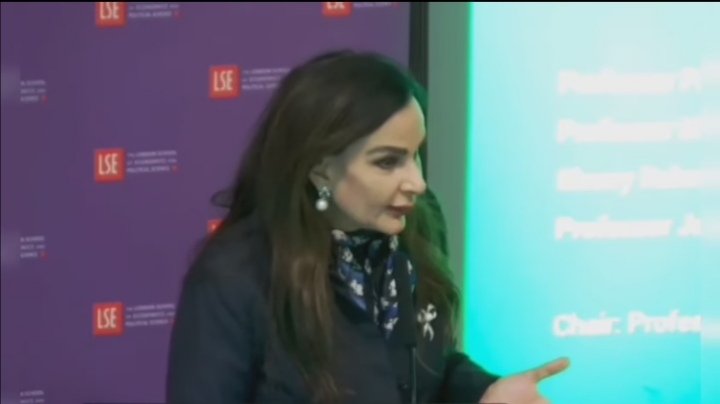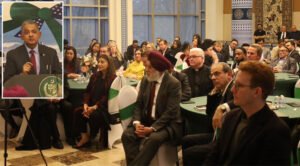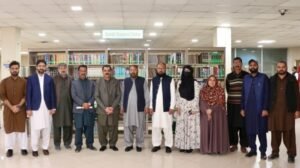
Senator Sherry at LSE Environment Week: “COP30 Must Deliver More Than Any Other COP Before It
Islamabad : Speaking at the London School of Economics Environment Week on the road to COP30 in UK, Senator Sherry Rehman, Chair of Senate Standing Committee on Climate Change, delivered a stark warning that “our house is burning” and that the Global South cannot afford another summit of slogans without substance.
“As micro emitters, Global South did not create this ball of fire that the earth is becoming, yet we are paying the highest price. For countries like ours, the climate crisis is not abstract — it is real and existential. When COP leaders say ‘we will leave no one behind,’ then stop with the band-aids on bullets and the slogans. Because in reality, half the world is being left behind. The bumper stickers are fabulous, the PR machine is fabulous, but now it has to mean something.”
Senator Rehman pointed to the devastating realities already being lived in the Global South:
“Where I come from, we have faced our fourth consecutive summer of 53 degrees Celsius. London declares an emergency at 40. For us, this is daily survival. The 1.5-degree target is no longer alive; we are heading towards at least 2.5, and it already feels like 3 above pre-industrial levels. On our current trajectory, we could see 4 degrees by the end of the century. Catastrophe is no longer looming; it has crossed borders and arrived at every doorstep.”
She underlined the urgent need for trust at COP30:
“Trust will only be built when countries match their promises. The UK, the EU, and some others are stepping up, but the big emitters still lag on historic pledges. For years, every COP has been labelled an ‘implementation COP’ or a ‘finance COP.’ In reality, they’ve just become more expensive COPs to attend. What we need are real pathways that cut emissions and protect the most vulnerable.”
On climate finance, Senator Rehman called for clarity and accountability:
“Half of the world is already facing water stress. Beyond adaptation, we still don’t even have a clear definition of climate finance. Why does this matter? Because when countries pledge billions after a flood in Pakistan, it is often double-counted as ODA or reallocated from elsewhere. That is not new money. The stocktake process must be updated with transparent definitions, so we actually know how much is going where. Just as NDCs are reported annually, there should also be IDCs — Internationally Determined Contributions on finance — a pitch Pakistan made at last year’s COP.”
She added that debates on carbon pricing and debt swaps must not distract from the larger picture:
“For Pakistan, ranked as the most vulnerable country in 2022 in the Climate Risk Index 2025, carbon pricing would hardly move the needle. The real breakdown is in voluntary commitments and the erosion of multilateralism. Debt swaps are not a solution either if they just pile on further obligations.”
Despite these challenges, Senator Rehman noted reasons for cautious optimism:
“The good news is that global investment in renewables has doubled every year, with $2 trillion going into clean energy. Yet fossil fuels still receive $7 trillion in subsidies annually, according to the World Bank. Many countries are pivoting to renewables because of lower capital costs. Pakistan itself has already achieved 25% renewable generation entirely on its own. That is what investing in our future looks like. That is the spirit COP30 must embrace.”
Concluding her remarks, she reiterated that for countries like Pakistan, the stakes could not be higher:
“COP30 cannot be another ritual of speeches and pledges. Delay is not measured in negotiation rounds; it is measured in lost lives and erased futures. For those of us already living in the furnace, this COP must deliver more than any that came before it.”







